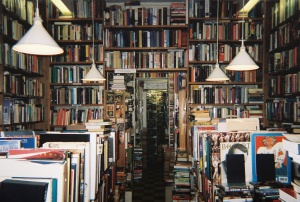Let us now praise Georgette Heyer
 Sometimes people are shocked when I reveal that I occasionally read ... romance novels. I could give you an abbreviated version of my rant about how this is as valid a genre as, say, thriller or mystery, which seems to be perfectly acceptable as lighter literary fare. Only thrillers and mysteries generally have more violence and usually have less sex. Some romances are pretty well written. Many of them are terrible dreck. I think that's true in any area of literary output, including a lot of the stuff that is considered Literary.
But I'll spare you (any more of) that rant. Instead, I'll blame my mom and grandmother. They did not leave what the smart women at Smart Bitches Trashy Books have dubbed Old Skool romances (Kathleen Woodiwiss, Rosemary Rogers) lying around the house. But they did have a weakness for the works of Georgette Heyer. Enough of a weakness that the bookshelves in our house, along with lots of Serious Nonfiction and Classic Works of Literature, had a pretty good collection of Heyer novels. These tended to be either well-worn hardcovers that had been discarded from the Chappaqua Library, where my grandmother was director, and some 1970s-vintage paperbacks, like the one I'm including here.
Sometimes people are shocked when I reveal that I occasionally read ... romance novels. I could give you an abbreviated version of my rant about how this is as valid a genre as, say, thriller or mystery, which seems to be perfectly acceptable as lighter literary fare. Only thrillers and mysteries generally have more violence and usually have less sex. Some romances are pretty well written. Many of them are terrible dreck. I think that's true in any area of literary output, including a lot of the stuff that is considered Literary.
But I'll spare you (any more of) that rant. Instead, I'll blame my mom and grandmother. They did not leave what the smart women at Smart Bitches Trashy Books have dubbed Old Skool romances (Kathleen Woodiwiss, Rosemary Rogers) lying around the house. But they did have a weakness for the works of Georgette Heyer. Enough of a weakness that the bookshelves in our house, along with lots of Serious Nonfiction and Classic Works of Literature, had a pretty good collection of Heyer novels. These tended to be either well-worn hardcovers that had been discarded from the Chappaqua Library, where my grandmother was director, and some 1970s-vintage paperbacks, like the one I'm including here.
I don't know my romance novel history all that well but I suspect Heyer might be responsible for making the Regency the Big Mama of historical romance time periods. This, of course, is a nod to Jane Austen (by the way, people, the works of Jane Austen and the Bronte sisters are NOT HISTORICAL NOVELS. They are novels that were contemporary works of fiction; they just happen to have been written a long time ago. It makes me crazy when I see that stuff recommended as works of historical fiction). But back to Heyer. She's funny. She's entertaining. Her characters are smart and complicated (or stupid and funny). You're pretty much guaranteed a happy ending but you may be surprised and you're probably going to be amused by how she gets there.
Don't just take my word for it. How about the word of A.S. Byatt, Booker Prize-winner and all that? In her essay collection, Passions of the Mind, she has a whole piece about Heyer called "An Honourable Escape" (which sounds just like a Heyer title, as I'm sure Byatt intended). It comes right after essays about Sylvia Plath and Toni Morrison.
All of which is to say, if you need some good "escape literature," as Byatt calls Heyer, to distract yourself from hurricanes, economic stresses, political strife or whatever, you might consider giving Heyer a try. Especially since, if you are of the digital persuasion, you can get a lot of her stuff for pretty damned cheap, at least on Amazon. If you prefer reading on dead trees, we have a bunch of them in the Monroe County Library collection and I wouldn't be surprised if, outside of the Keys, your local library also had a good stock. My grandmother was not the only librarian with a weakness for Heyer. If you don't know where to start, two that I highly recommend are The Nonesuch and The Toll-Gate -- and not just because the Key West Library copies happen to have those old buckram library bindings, about which I am becoming ridiculously nostalgic.



